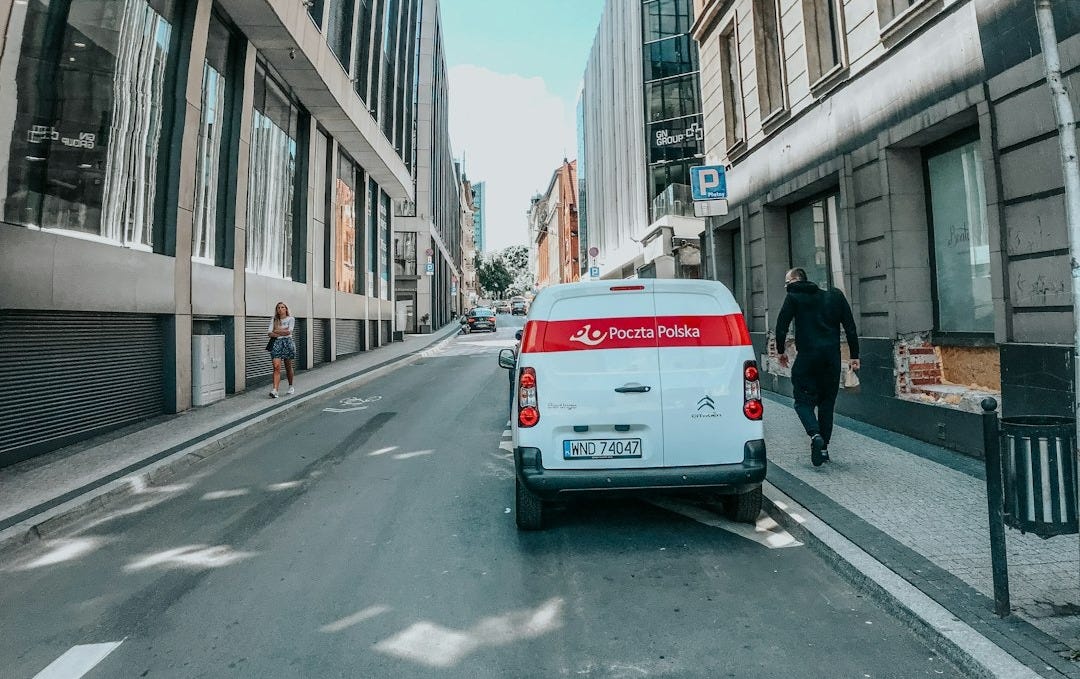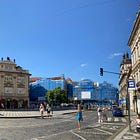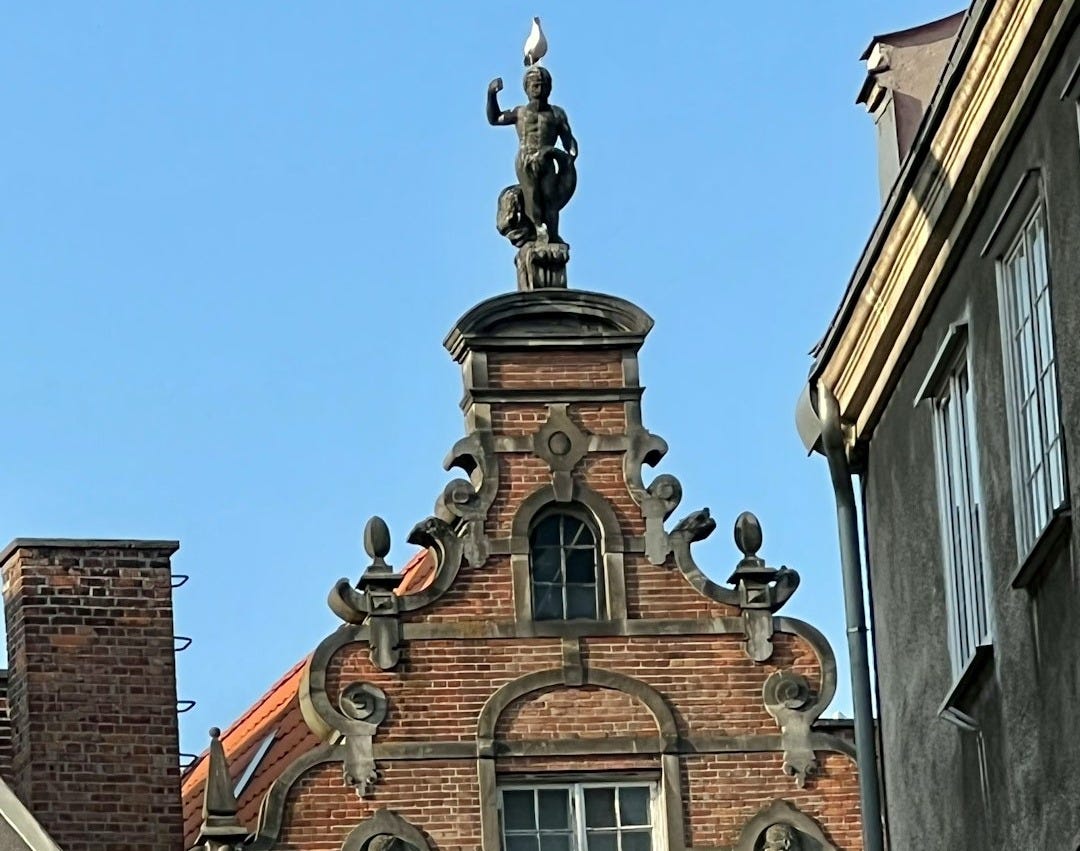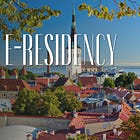Poland for Digital Nomads: Visa Options, Best Cities & Cost of Living in 2025
See why Poland is a smart EU base for digital nomads, with visa tips, cost of living info, top cities for midlife remote workers, and more.
🧳 Use Midlife Nomads Destination Guides to inspire your next adventure with practical tips and honest insights—so you can work well while travelling better.

Thinking about moving to Europe to work remotely, but not sure where to start? While places like Portugal and Spain dominate the digital nomad headlines, Poland is quietly becoming one of the smartest and most sustainable EU choices for midlife remote workers.
Affordable, culturally rich, and offering a legal pathway for self-employed professionals, Poland makes a compelling case for those ready to trade short-term visas for long-term belonging.
While there’s no official “digital nomad visa,” Poland offers an under-the-radar option through its Type D national visa or a temporary residence permit for business or freelance work. With the right paperwork and a bit of patience, you could build a legitimate, lasting life in the heart of Europe.
In this guide, we’ll walk you through why Poland might be your most overlooked opportunity yet, plus:
Info on Poland’s Type D visa, not digital nomad-specific but a residency option nonetheless
5 Polish cities & regions we love
What it costs to live in different parts of Poland
Essential info on Poland’s healthcare system, and your access to it
The catch and caveats - reasons Poland may not be for you
Let’s go!
Disclaimer: The information in this guide is provided for general informational purposes only and is not intended as legal, immigration, or tax advice. Visa policies, eligibility requirements, and tax obligations can change frequently and vary depending on your nationality, personal circumstances, and local regulations. Always consult with a qualified immigration lawyer, tax advisor, or relevant government authority before making decisions about relocation or business setup in Poland or any other country.
Poland’s Path for Freelancers: Legitimate, If a Bit Bumpy
Poland’s national visa (Type D), combined with registering as a sole proprietor, can be an effective option for freelancers and remote professionals from outside the EU/EE. Applicants must demonstrate a legitimate business activity and meet clear documentation requirements.
Importantly, a Polish national visa or residence permit allows you to live and work in Poland, but does not grant automatic, unlimited access to live in all Schengen countries. While you can travel within the Schengen area for up to 90 days within any 180-day period, your legal primary residence must remain in Poland, and extended stays in other countries are not automatically permitted.
Related:
Here’s how it works: Non-EU/EEA citizens interested in self-employment may be able to register as a sole proprietor (jednoosobowa działalność gospodarcza) in Poland after obtaining the appropriate visa or residence permit.
Successful registration, along with demonstrating ongoing business activity and sufficient means, forms the foundation for a stay that allows you to legally reside in Poland and work for clients globally—including Polish clients if your permit allows it. In practical terms, this means that if you’re a freelance graphic designer, an online educator, a consultant, or even an English teacher hoping to pick up a few gigs in Kraków, you’re not just allowed… you’re encouraged.
Note: Many non-EU nationals must first obtain residency before registering a sole proprietorship, and eligibility may vary by nationality. More on that below.
The Sweet Spot Between Simplicity and Substance
One of the most appealing parts of Poland’s setup is that it manages to be both legitimate and refreshingly straightforward. Unlike other countries where you’ll be buried in notarized translations and requests for obscure paperwork, Poland keeps the initial requirements fairly simple.
You don’t need to prove a local rental lease, open a Polish bank account, or even submit a criminal background check.
You will generally need a valid passport, completed application form, proof of sufficient financial means, valid medical insurance, proof of accommodation in Poland, and potentially a criminal record certificate.
Most of the documentation can be submitted in English. And if you apply from your home country, the visa can often be granted in just a few weeks.

There is, of course, a catch—or rather, a commitment. This isn’t a “show us your bank balance and hang out in a villa” kind of visa. You’re setting up a business in Poland. That means registering for taxes and healthcare, paying into Poland’s social security system (known as ZUS), and making a real, tangible contribution to the country.
For some, that’s a turn-off. But for many midlife nomads, it’s exactly what we’re looking for: structure, stability, and a sense of belonging in our new home.
Staying Connected and Getting Around: The Digital and Physical Infrastructure
When it comes to working remotely, Poland delivers where it counts, starting with connectivity. High-speed internet is widely available, reliable, and affordable throughout the country.
Most urban apartments and coworking spaces offer fiber-optic connections, and even smaller towns typically have solid 4G coverage. Mobile data plans are inexpensive (often under €10/month), and SIM cards are easy to purchase upon arrival.

Coworking culture is also growing fast, particularly in cities like Kraków, Warsaw, and Wrocław, where you’ll find everything from sleek startup hubs to cozy cafés with strong Wi-Fi and a plug for every seat.
As for getting around, Poland has one of the best public transportation networks in Central Europe. Trams, metros, and buses in major cities are frequent, punctual, and cheap; think €20–€30 for a monthly transit pass. Intercity trains are clean, fast, and well-connected, especially between major hubs.
And yes, Uber and Bolt are widely used in urban areas.
Accessibility varies by region, but major cities have made real strides in accommodating travelers with mobility needs, and many public trams and metro stations are now equipped with ramps, lifts, and audio announcements. Still, older buildings and smaller towns may pose some challenges, so it’s worth doing a bit of research if that’s a key concern.
Where to Land: 5 Polish Cities and Regions Digital Nomads Love
Choosing a city to call home in a new country is about more than just cost of living or coworking space density; it’s about finding a vibe that matches your rhythm, a neighborhood that feels like yours, and a lifestyle that’s both enriching and sustainable.
Poland, with its rich mix of history, modernity, and natural beauty, offers a surprising range of options for remote workers. Here are five top picks that deserve a spot on your digital nomad radar.
1. Kraków – The Cultural Heartbeat

Kraków is a city that wears its history well. With cobblestone streets winding past medieval churches and vibrant cafes, it feels like living inside a storybook… but one where the Wi-Fi is fast and the espresso is strong. Home to Poland’s oldest university, a thriving arts scene, and an impressive tech hub, Kraków strikes a rare balance between the past and the present.
For digital nomads, it’s not just the atmosphere that appeals. Coworking spaces are plentiful, the expat community is active and supportive, and the cost of living remains refreshingly manageable. If you’re someone who values culture, walkability, and a strong sense of place, Kraków might just steal your heart.
2. Warsaw – The Ambitious Capital

Warsaw often surprises people. What was once a gray, utilitarian capital has transformed into a modern, thriving metropolis with sleek skyscrapers, a serious foodie scene, and some of the best public transportation in Europe. It’s fast-paced, international, and full of opportunity.
For remote professionals looking to build connections, Warsaw offers the biggest business network in the country—including local clients and coworking spaces that cater to serious entrepreneurs.
You’ll find a deeper pool of English-speaking professionals, more events, and greater access to services in English. If you’re looking to scale your freelance business or plug into Poland’s economic engine, this is the place to be.
3. Wrocław – The Underrated Gem

Wrocław (pronounced “VROTS-wav”) is one of Poland’s most charming and livable cities—and somehow, it still flies under the radar. Its historic core is laced with canals and dotted with whimsical gnome statues, but don’t let the fairy-tale setting fool you: Wrocław is a serious tech and startup city, home to one of Poland’s largest student populations and a strong international presence.
It’s smaller and more manageable than Warsaw, but offers many of the same perks: coworking hubs, cultural events, a laid-back social scene, and easy access to the rest of Europe. Many nomads say it feels just right—big enough to have energy, small enough to feel personal.
4. Gdańsk – Coastal Cool with History and Grit

If sea air and Baltic sunsets sound like your kind of medicine, consider Gdańsk. This coastal city blends maritime vibes with centuries of history and a healthy dose of creative grit. It's part of the Tri-City area (along with Sopot and Gdynia), giving you access to beach life, a buzzing arts scene, and a growing tech economy.
Gdańsk is particularly appealing for digital nomads who want the perks of an urban environment with the calm of the sea just a tram ride away. Bonus: summers here are stunning, with long days and breezy, café-lined promenades that feel miles away from mainland hustle.
5. The Tatra Region – Mountain Magic for Nature Lovers

For those who’d rather swap skyline views for mountain trails, the southern region near Zakopane offers a slower, nature-centric pace. Nestled at the foot of the Tatra Mountains, this area is popular with hikers, skiers, and those seeking an escape from city life.
While infrastructure is more limited than in the big cities, remote workers who thrive on solitude and fresh air will find inspiration in abundance. Picture morning hikes through alpine trails, thermal baths in the afternoon, and cozy evenings with a hot mug of tea and a view. If your idea of success includes serenity and snow-capped peaks, this could be your sanctuary.
Each of these cities and regions has its own flavour, pace, and community. Whether you're seeking cultural depth, entrepreneurial energy, seaside serenity, or mountain peace, Poland delivers, and it does so at a fraction of the cost of most Western European hubs. It’s not just about where you work remotely from; it’s about where you feel most at home.
What It Really Costs to Live in Poland as a Digital Nomad
One of Poland’s most enduring strengths as a digital nomad destination is its affordability, especially compared to the rest of the Schengen zone. Whether you choose a culture-rich city like Kraków or a quiet mountain town near Zakopane, the cost of living remains refreshingly manageable, particularly for remote workers earning in euros, pounds, or dollars.
But how affordable is affordable? Here are some real examples from recent travelers and current digital nomads.
Kraków, Wrocław, and Gdańsk: Cultural Living at a Reasonable Price
These three cities consistently rank as some of the best value-for-money locations in Poland.
A digital nomad couple slow-traveling through Wrocław recently shared their full expense breakdown: a private Airbnb rental in the city center cost them about 4,500 PLN per month (around €950), groceries came to roughly 1,250 PLN (€265), and their total monthly living expenses, including eating out and public transport, clocked in around 7,000 PLN—about €1,475 in total (Happy Little Traveler).
That figure reflects a comfortable lifestyle… not scraping by, but living well. Comparable numbers apply to Kraków and Gdańsk, where rent, dining, and daily expenses tend to be in the same range, depending on location and housing choice.
Warsaw: A Capital with Capital-C Costs

Warsaw, Poland’s fast-paced capital, is still affordable by Western standards but definitely comes at a premium compared to smaller cities. According to current estimates from Nomads.com, digital nomads in Warsaw spend about $3,124 per month on average, with expats living more modestly around $2,093 monthly (Nomads.com).
Rent is the primary driver of higher costs here. A one-bedroom apartment in a central neighborhood can run close to $1,136 per month. That said, Warsaw offers one of the best transportation systems in Europe, strong international infrastructure, and a cosmopolitan energy that may justify the price tag if you’re building a career or expanding a network.
Zakopane and the Tatra Mountains: Peaceful and Pricy (Sometimes)

Heading south to Poland’s mountainous border with Slovakia, Zakopane offers alpine air and stunning views, but often at a surprising cost.
Recent estimates put the average monthly living expense for a single person at about $2,104, with rent for a one-bedroom ranging from $1,043 to as high as $4,984 depending on quality and season (Nomadlio).
Groceries here are consistent with national averages—think under $1 for a liter of milk or a loaf of bread—but short-term accommodation can skew higher due to the town’s popularity with tourists. Long-term rental deals are possible, but availability may be more limited than in the cities.
A Month in the Life
Here’s a quick comparison of what a solo digital nomad might spend per month in each location:
Kraków/Wrocław/Gdańsk: €1,000–€1,200 for a comfortable, central lifestyle
Warsaw: €1,900–€2,800 depending on rent and lifestyle
Zakopane/Tatra region: €1,700–€2,000+ (with wide seasonal variability)
Across the board, Poland offers real value, especially for digital nomads looking to slow down, stretch their savings, or lay down roots without breaking the bank.
Whether you’re based in a bustling café in Warsaw or sipping mulled wine in a mountain cabin near the Slovakian border, your money tends to go a lot further here than it would in Berlin, Paris, or Amsterdam.
Healthcare, Taxes, and the Perks of Playing the Long Game

One of the most surprising (and frankly, refreshing) features of this visa pathway is access to Poland’s national healthcare system. As a registered sole proprietor, you’ll automatically be enrolled in both social security and public health coverage (NFZ), which includes the right to a European Health Insurance Card.
That’s right: healthcare not just in Poland, but across the EU.
For someone like me with ongoing health issues and anxiety about leaving the accessibility of the Canadian system, this is huge.
Of course, this means you’ll be paying taxes in Poland. But think of it this way: if you’re going to be paying taxes anyway, why not do it in a place that gives you something in return? It’s a far cry from other nomad visas that collect fees without offering access to local benefits.
And here’s where it gets even better. If you like Poland (and many do), you can extend your stay. That initial one-year visa can turn into a three-year residence permit. Stay five years, and you’re eligible for long-term EU residency.
Stick around for eight, and you can apply for citizenship. For those of us seeking a meaningful relocation rather than a fleeting escape, that’s a path worth considering.
The Catch (Because There’s Always One)
Now, we’d be remiss if we didn’t mention the fine print. While Poland’s freelance visa pathway is technically open to all nationalities, in practice, U.S. citizens are the most likely to benefit.
Thanks to a special bilateral agreement, Americans can register as a sole proprietor (jednoosobowa działalność gospodarcza) in Poland without already holding Polish residency. That makes the process relatively straightforward compared to what most other non-EU nationals face.

Canadians and UK citizens, however, are not so lucky. As non-EU and non-EFTA nationals, they cannot legally register a sole proprietorship in Poland unless they already have a valid Polish residence permit. This creates a frustrating chicken-and-egg dilemma: you need to be legally resident to register your business, but registering the business is often what you need to gain legal residence.
Technically, it's possible to work around this by setting up a more complex legal structure like a limited liability company (spółka z o.o.), but this route involves higher costs, more red tape, and ongoing compliance requirements—making it less attractive for most digital nomads.
To complicate matters further, Polish bureaucracy has a reputation for being slow and opaque, with many official processes still done in-person and only in Polish. That’s why many digital nomads—regardless of nationality—choose to work with a local accountant or immigration lawyer who can help navigate the system, often through a power of attorney.
Still, for U.S. citizens looking to relocate to Europe, Poland remains one of the most accessible and beneficial options. With a clear legal pathway, access to EU healthcare, and long-term residency potential, it’s a strong contender for anyone ready to put down roots and work remotely from the heart of Europe
Is Poland Right for You?
If you’re in your 40s, 50s, or beyond and craving more than a temporary escape—if you’re looking to build a life with roots, rhythm, and real community—Poland may be exactly the kind of place you didn’t know you were looking for. It’s affordable, connected, culturally rich, and increasingly welcoming to remote professionals who want more than just a scenic backdrop.
Sure, it’s not the smoothest visa in the EU toolkit, and it won’t hand you residency on a silver platter. But for those willing to invest a little effort, Poland offers something truly valuable: a path that’s legally sound, financially viable, and deeply human.
And in the end, that’s what we’re all really after: a place that lets us work well while living better.
You might also like:







